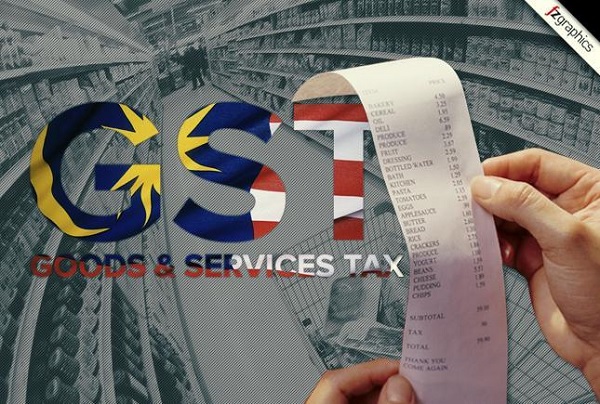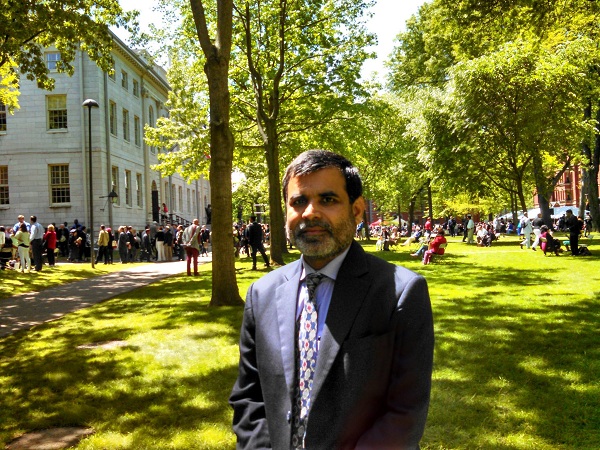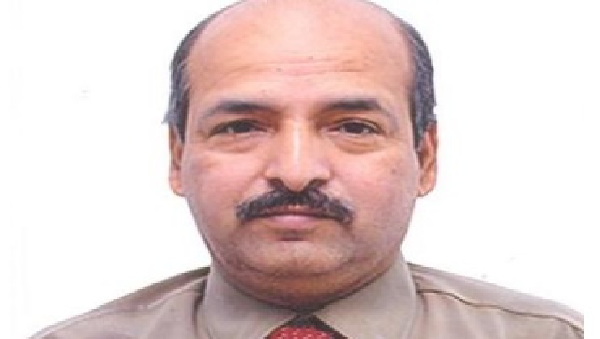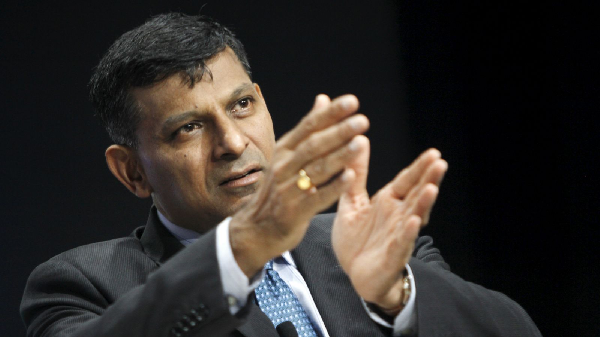
by admin | May 25, 2021 | Corporate, Corporate finance, News
 Mumbai:(IANS) Introduction of the GST system is expected to have a macro economic impact and will set a new course for cooperative federalism by strengthening Centre-state partnership, the RBI said in a report released here on Friday.
Mumbai:(IANS) Introduction of the GST system is expected to have a macro economic impact and will set a new course for cooperative federalism by strengthening Centre-state partnership, the RBI said in a report released here on Friday.
According to the Reserve Bank of India (RBI) report entitled ‘State Finances: A Study of Budgets of 2016-17’, the Goods and Services Tax (GST) introduction is expected to have significant macro economic implications in terms of growth, inflation, export competitiveness and fiscal balance in the years ahead.
“The successful implementation of GST will result in additional revenue through simpler and easier tax administration, supported by robust and user-friendly IT (information technology) systems,” the study said.
It said the GST is expected to reduce administrative costs for collection of tax revenue and improve revenue efficiency while uniformity in tax rates and procedures will lead to economy in compliance cost.
The GST regime will also increase the shareable pool of resources, resulting in transfer of large funds to the states for developmental works.
“Such an outcome will ensure debt sustainability of states in the long term. In fact, the GST is likely to set a new course for cooperative federalism in India by strengthening Centre-state partnership,” the study said.
According to the RBI study, most of the central cesses will be subsumed into the GST and in turn increase the divisible pool of resources which is to the advantage of states.
“Introduction of a new cess on luxury and demerit goods may be contrary to the GST spirit but the proceeds will be used to compensate the states; thus, the overall impact of GST will be beneficial,” the study said.
The study said that from the point of view of implementation, it could be argued that the GST is imposed on consumption while cess, which is typically applied at the stage of manufacturing, may be difficult to administer and could also lead to cascading effects.
On the status of state’s finances, the study said that increasing reliance on market borrowing, along with enabling conditions for additional borrowing by states, poses challenges for the sustainability of state finances as higher state borrowings raise yields and cost of borrowing.
Due to prevailing uncertainty about the revenue outcome from the GST implementation, the outlook for revenue receipts of states could turn uncertain, the study said.
“There is, however, the cushion of compensation by the Centre for any loss of revenue for initial five years. In this context, the GST remains the best bet for states in clawing back to the path of fiscal consolidation over the medium term,” the study said.

by admin | May 25, 2021 | Islamic Banking, News, Opinions


Dr Shariq Nisar
By Dr Shariq Nisar
Shariah banking, PLS banking, Ethical banking, Interest-free banking are different names used to identify Islamic banking which primarily works without relying on interest mechanism. Interest is strictly prohibited in Islam and therefore many countries especially those where Muslims live in majority have developed an alternate way of banking where profit is earned by banks through trade and investments rather than pure lending. Since early nineties, many developed countries took great interest in this new form of banking to attract investments from energy rich Arab world and also to improve financial inclusion of the domestic population which was hitherto shying of making full use of banking facilities due to religious concerns.
In India, while interest-free institutions can be traced prior to the country’s independence the real effort by Indian Muslims began during first non-congress government in 1970s. Nothing happened as the idea of Islamic banking itself was under formative stage then. Unrestrained proliferation of NBFCs in early 1990s saw the emergence of many community led institutions that claimed to work on Islamic principles of shunning interest and sharing of the risk and rewards with shareholders and depositors. In late nineties, RBI introduced large scale changes in NBFC regulations which eventually led to closure and collapse of hundreds of NBFCs in the country including some prominent Islamic NBFCs. After the new NBFC regulations the only Islamic Finance Company that survived was Kerala based Alternative Investments and Credits Ltd. (AICL). In 2009, Kerala Government tried to copy this model by promoting an Islamic NBFC (Al-Baraka Financial Services Ltd.) that would work without indulging in interest. The idea was to seek investments from public and some rich NRIs and use the funds to develop infrastructure in the state. All those contributing funds would be paid dividend instead of interest. Very soon a PIL was filed against Al-Baraka on the following counts:
- Forming an Islamic finance company was a clear instance of state favoring a particular religion;
- Taking advice from scholars of a particular community (Shariah Scholar) shows the identification of state with a particular religion to the exclusion of other faiths;
- Shariah prohibition of interest, alcohol and others are against the constitutions of India
The lower court ordered immediate stay of the company’s operation but Kerala High Court after hearing the views of Central Government, Reserve Bank of India and several others finally dismissed the petition filed against the company and paved the way for India’s first company promoted by government to do business on Islamic principles.
However, it’s worth noting that RBI stood in support of the petitioner arguing in the court that Islamic banking cannot function under Indian financial regulations. Prior to this RBI in its Working Group Report in 2005 (more popularly known as Anand Sinha Committee Report) had concluded that Islamic banking is not possible within existing Indian finance regulations. The same position was reiterated by the RBI Governor at a public function in 2012.
“The banking act doesn’t conform to Islamic banking because it allows banks to borrow from and deposit money with RBI on Interest” (D Subbarao, Governor RBI, Times of India October 4, 2012).
To prove its position RBI canceled the NBFC license of AICL on the allegation that AICL violated RBI’s prescription of fair interest practice code. This was very surprising as RBI had given license to the company based on the proposal that company would work on the basis of profit and loss sharing instead of interest. The company since has gone to the court where the matter is still pending.
The change in RBI’s leadership in 2013 brought some fresh thinking which probably led RBI to develop a positive impression of the concept. First it was Deepak Mohanty Committee that in December 2015 recommended that;
“commercial banks in India may be enabled to open specialized interest-free windows with simple products like demand deposits, agency and participation securities on their liability side and to offer products based on cost-plus financing and deferred payment, deferred delivery contracts on the asset side”.
And thereafter an RTI query has revealed that RBI has written to the government regarding gradual introduction of Islamic banking in the country. Media went gung-ho in praising this move of RBI as sign of new government’s commitment to “Sabka Saath Sabka Vikas” but soon all euphoria died when the Union Finance Ministry declared that Islamic banking was not relevant any more. The Minister of State for Finance Mr. Santosh Kumar Gangwar replied in the Loksabha that various legal changes would become necessary if even limited products were to be introduced under Islamic banking.
One fails to understand the logic behind not allowing a banking model that is practiced in nearly 75 countries of the world including some of the most secular, democratic and advanced.
| Time Line (Islamic Banking and Finance in India) |
Year |
| RBI appoints Anand Sinha Committee for studying Islamic Financial Products |
2005 |
| Raghuram Rajan Committee recommends Interest-free banking for financial inclusion |
2008 |
| Ministry of Minority Affairs invites bids for reconstruction of National Minority Development Finance Corporation (NMDFC) on shariah Lines |
2008 |
| SEBI permits India’s first shariah compliant Mutual Fund Scheme |
2009 |
| SEBI permits India’s first shariah compliant Venture Capital Fund |
2009 |
| GICRe enters Retakaful (Islamic reinsurance) in the foreign reinsurance market. |
2009 |
| Government of Kerala announces starting of an Islamic NBFC |
2009 |
| BSE and TASIS launch BSE-TASIS Shariah 50 Index |
2010 |
| Kerala High Court dismisses petition filed against Kerala-based Islamic finance company |
2011 |
| RBI cancels license of Islamic NBFC |
2012 |
| RBI Constituted an Inter-Departmental Group (IDG) on Islamic Banking to understand the feasibility of introducing Islamic banking in India |
2013 |
| SBI defers the launch of Shariah Equity Fund |
2014 |
| RBI Recommends Introduction of Interest-free Banking by Indian Commercial Banks |
2015 |
| RBI’s Inter-Departmental Group (IDG) on Islamic Banking submits its Report to the Government of India |
2016 |

by admin | May 25, 2021 | Corporate, Corporate Governance, Economy, News
 New Delhi:(IANS) The SIT on black money has asked the RBI to set up a framework for sharing the data on the outflow of illicit wealth from the country with the enforcement authorities, an official statement said on Monday.
New Delhi:(IANS) The SIT on black money has asked the RBI to set up a framework for sharing the data on the outflow of illicit wealth from the country with the enforcement authorities, an official statement said on Monday.
The Special Investigation Team Chairman, Justice (retired) M.B. Shah, in a letter dated August 11 to Reserve Bank of India (RBI) Governor Raghuram Rajan has impressed upon the imperative need to establish the following institutional mechanism for sharing of data with the enforcement authorities to curb illicit financial flows, finance ministry said in a statement.
“Access to this database would needs to be given to authorities like Enforcement Directorate and Directorate of Revenue Intelligence, so that the above analysis could be done,” he said, as per the statement.
Presently, RBI holds the information with respect to all types of foreign exchange transactions.
The SIT on black money, appointed by the Supreme Court, is of the view that there should be effective sharing of information between various government departments, particularly of enforcing agencies, it said.
The data can be shared only by having one agency such as Central Economic Intelligence Bureau (CEIB) or any other agency, as a data warehouse, it added.
“From the said data warehouse, various agencies can gather the relevant information for taking early appropriate action. This is so since the data available with one agency can be relevant to action expected to be taken by other law enforcement agency,” according to the statement.
The SIT said that for controlling and tracking illicit financial flows out of the country, use of RBI data by various law enforcement agencies like Enforcement Directorate, Directorate of Revenue Intelligence and Central Board of Direct Taxes (CBDT) is of critical importance.
SIT has suggested that Foreign Exchange Transactions Electronic Reporting System (FET-ERS) data should capture the PAN number of the importer or the exporter and that RBI take necessary steps for the same to get this done on an urgent basis.
In the data provided by RBI to the SIT, huge amounts were found outstanding beyond a period of one year in violation of the Foreign Exchange Management Act (FEMA).
The SIT had noted that the possibility of the concerned companies having wrongly claimed duty drawback also cannot be ruled out. Further, the possibility of the companies concerned having availed of various export promotion schemes also cannot be ruled out.
“SIT in the letter expressed satisfaction that Import Data Processing and Monitoring System (IDPMS) is being set up by RBI which is expected to be launched by the end of September which will enable cross checking of each advance remittance irrespective of value against the Bill of Entry,” it said.

by admin | May 25, 2021 | Banking, News
 Mumbai, (IANS) Reserve Bank of India (RBI) announced on Monday that N.S.Vishwanathan assumed office as a Deputy Governor, replacing H.R.Khan, who retired on turning 62.
Mumbai, (IANS) Reserve Bank of India (RBI) announced on Monday that N.S.Vishwanathan assumed office as a Deputy Governor, replacing H.R.Khan, who retired on turning 62.
“N.S.Vishwanathan took over as the Deputy Governor of the Reserve Bank of India today (Monday),” RBI said in a release here.
“The Government of India, on June 29, 2016 has appointed him as the Deputy Governor of the Reserve Bank of India, for a period of three years from the date of his taking over charge of the post on or after July 4, 2016, or until further orders,” it said.
As Deputy Governor, Vishwanathan will look after Department of Banking Regulation, Department of Co-operative Banking Regulation, Department of Non-Banking Regulation, Deposit Insurance and Credit Guarantee Corporation, Financial Stability Unit, Inspection Department, Risk Monitoring Department and the Secretary’s Department, the release added.
Vishwanathan was earlier Executive Director with the RBI.
India’s central bank has four Deputy Governors – the others being R. Gandhi, S.S.Mundra and Urjit Patel.

by admin | May 25, 2021 | Banking, News
 Mumbai, (IANS) Ending months of suspense, Reserve Bank of India (RBI) Governor Raghuram Govind Rajan formally told his colleagues on Saturday that he is not keen on a second term at the helm of the country’s central bank and will return to academia when his tenure ends in September.
Mumbai, (IANS) Ending months of suspense, Reserve Bank of India (RBI) Governor Raghuram Govind Rajan formally told his colleagues on Saturday that he is not keen on a second term at the helm of the country’s central bank and will return to academia when his tenure ends in September.
Soon after, Finance Minister Arun Jaitley, while appreciating Rajan’s role, said a successor will be named soon.
Rajan’s decision was conveyed in an 888-word letter by him to the RBI staff, a copy of which was obtained by IANS — one in which he has listed what the central bank has managed to achieve in the past three years and what remains to be done, although that process has also been initiated.
Reflecting on his term as the 23rd governor of the central bank since September 2013 — which has seen praise and also a fair share of criticism — Rajan said the agenda pursued by his team was to help nurse India back on the path of recovery first, and then growth, and keep prices in check.
He went on to allude that much was accomplished, even as a part of that onerous task remained a work in progress — while also indicating that he was ready to see that through as well, but eventually decided against it.
“While I was open to seeing these developments through, on due reflection, and after consultation with the government, I want to share with you that I will be returning to academia when my term as governor ends on September 4, 2016,” he said.
“I will, of course, always be available to serve my country when needed,” he added.
“I am an academic and I have always made it clear that my ultimate home is in the realm of ideas. The approaching end of my three year term, and of my leave at the University of Chicago, was therefore a good time to reflect on how much we had accomplished.”
Stating that he will be returning to the US university, from where he is on a sabbatical, Rajan listed his unfinished agenda as seeing a monetary policy panel in place to broadly guide the central bank, and a clean-up of banks’ balance sheets.
Listing the achievements, since the time India’s growth was high and inflation also high when he took over, the governor said price control, improving foreign exchange reserves, currency stability, an eventual lowering of interest rates and extending a helping hand for reforms stood out.
He hoped the unfinished agenda for which the path had been paved will be pursued by his successor — the 24th governor of the Reserve Bank — again a matter of much debate and interest, with some names already doing the rounds.
Much speculation had gone into a possible second term for Rajan, hailed by many as the best governor the central bank could have possibly had on its board during the difficult times India was going through, but also with some share of critics.
In fact, a petition floated online pushing for a second term for this IIT alumnus, had tens of thousands of netizens rooting for him, even as some critics like BJP leader Subramanian Swamy were particularly harsh towards him, asking Prime Minister Narendra Modi to let him go. Both Modi and Finance Minister Jaitley remained silent all along.
On Saturday, Jaitley said: “The government appreciates good work done by RBI Governor Raghuram Rajan and respects his decision.” He said a successor would announced “soon”.
Speculation gathered momentum when Anandabazar Patrika, quoting sources close to Rajan, said in a report two weeks ago that he was not interested in a second term, which got some credence when Modi said: “I don’t think this administrative subject should be an issue of interest to the media.”
Now that he has said no, RaghuramRajan is the hashtag trending at the top, mostly in his support.
Infosys co-founder N.R. Narayana Murthy, who has been batting, in fact, for not one but two more terms for Rajan, said: “Have no doubts he will continue to add value to the country. He deserves more dignity than what he was treated with.”
Swamy remained unrelenting. “Raghuram Rajan was an employee of the Government of India. We don’t select employees on the basis of popular vote — and, too, of industrialists,” he said.
Politicians seldom like someone outside their tribe shooting off his or her mouth. But a doctoral degree holder from the Massachusetts Institute of Technology, Rajan has always been outspoken — often getting pushed onto the wrong side of a debate.
The latest being his remarks on India being the king in a land of the blind which did not go down well with many, particularly the BJP leadership and notably Commerce and Industry Minister Nirmala Sitharaman.
But Rajan, who has also served in the International Monetary Fund, has been used to such critics.
Before he shot to global fame with his prediction of a looming global financial crisis way back in 2005, he had to face ridicule from such luminaries as then Federal Reserve chief Alan Greenspan and Nobel laureate Paul Krugman. He had the last laugh, so to say, when that became a reality.
What had started as an academic paper titled “Has Financial Development Made the World Riskier?” also eventually resulted in an Academy Award-winning documentary called “Inside Job”, bringing Rajan further into global limelight.

 Mumbai:(IANS) Introduction of the GST system is expected to have a macro economic impact and will set a new course for cooperative federalism by strengthening Centre-state partnership, the RBI said in a report released here on Friday.
Mumbai:(IANS) Introduction of the GST system is expected to have a macro economic impact and will set a new course for cooperative federalism by strengthening Centre-state partnership, the RBI said in a report released here on Friday.




